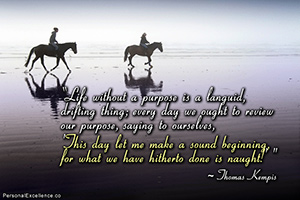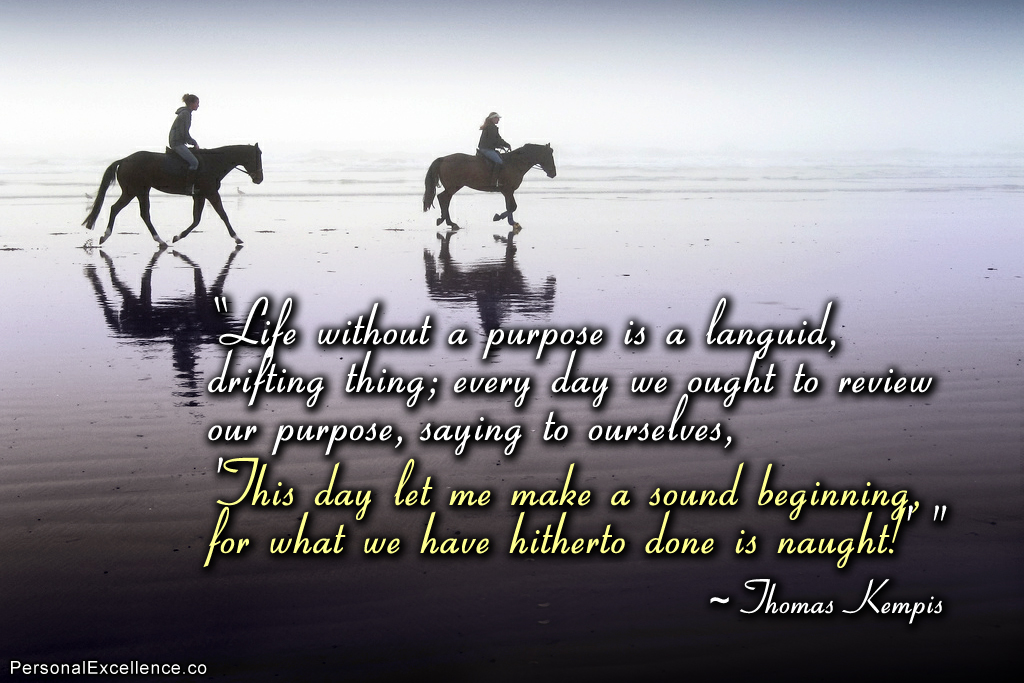
(Published on Jan 29, 2010)
Have you ever had a friendship that you had to let go to move forward?
I have. It was with one of my closest friends — someone whom I’d refer to as K. K and I knew each other for 10 years and were best friends, before we parted ways last year.
How We Knew Each Other
I first knew K when I was 15. That was 10 years ago, in 1998. At that time, I was learning web design as a hobby and was setting up my first website. As my web host was frequently down, I would often visit their IRC support channel to check out what was wrong. (Those were the good old days when IRC and ICQ ruled online chat.)
There, I came to know K, one of the support volunteers. K was 27 and from the U.S. Even though we were from different backgrounds and were 12 years apart, we hit it off very well. There was another girl, M, same age as me, whom I met in the chat room too.
Before we knew it, the 3 of us became very close friends. Our interest in web design was one of the things that brought us together. K, M, and I would often hang out online and chat for hours and hours to no end. Because we were in different time zones (I was in Singapore which is GMT +8, K was from the United States which is GMT -7, and M was from Netherlands which is GMT +1), we would take turns to stay up late or wake up early just to hang out more. One of the things I looked forward to every day after school was just hanging out with them. We were closer with each other than with many of our friends. The anonymity of the internet allowed us to connect authentically as individuals, free of subconscious impositions that come attached with social labels in the society.
Becoming Best Friends
Over the next few years, K and I stayed connected, while M and I drifted apart. Since K was from the U.S., we never met in person. Yet, over the next 10 years, our friendship grew stronger and stronger.
Do you have a very close friend in your life? K was my closest, platonic friend ever. He was the one person I knew I could trust my life with and he would protect it with his life. He was always there to provide a listening ear when I needed one, no matter how busy he was or what he was occupied with. Whether I was down, angry, happy or restless, he would be there to listen. We would talk on the phone almost every day. He would stay up late and sacrifice his sleep so we could talk. Our conversations covered just about everything, such as daily events, life, self-reflections, hobbies, our families, friends, relationships, my school, and his work.
Deep down, I felt extremely blessed and thankful to have a friend like him.
Wanting Him to Work On His Goals
As K’s best friend, I was deeply invested in his life. I wanted to see him thrive and succeed, because I felt that he deserved no less. I felt that K was seriously living below his potential, given that he was so intelligent — it was one of the reasons we could easily connect with each other. He seemed to be stuck in a rut in life.
For example, he kept working in jobs which underutilized his capabilities. In the 10 years we knew each other, he would switch back and forth between unemployment and odd jobs, even though he was capable of so much more. He was always trying to repay debts which he had built up from earlier years.
He was also procrastinating on his Quadrant 2 areas. For example, he wanted to be in a relationship, but never took much action to find his life partner. He neglected his health and fitness — he was taking the standard junk food diet and didn’t make an effort to keep his fitness in check. From an overall life standpoint, it felt like he was floating from day to day, not really living life to the fullest.
I was the biggest cheerleader for K and his goals. K would tell me about his goals, and his wish to do X and Y. I would nudge him to work on them. It started as small steps, by urging him to get a better job and work on his diet. These were areas he wanted to work on, but didn’t seem to do anything about them. I encouraged him to set goals and take action. I told him that unless he took action, nothing was going to change. If I happened to embark on a goal that he might be interested in, I would invite him to join me. Whatever skills or ideas that I learned and found useful, I would share with him so that he could benefit from it.
While K grew in his own way, largely through my pushes, he was largely living his life in inertia. Not only that, but I had to invest a lot of effort to get him to work on his goals. When I didn’t remind him about his goals or plans, he would not do anything. Overall, his life changes represented 0.01% of the total effort I was putting in to help him grow. These left me mentally and emotionally drained in the friendship.
Weariness in the Friendship

It got to the point where I was very frustrated. When we first met, I was 15 while he was 27. For the next 10 years, I grew very quickly in my life. However, his life was sort of in stasis. Sometimes he would tell me about his deepest wishes, and that he felt sad that he had yet realize them. I knew that deep down, he wanted more and he was capable of much more. Yet it felt like his life was in a standstill.
I felt sad. Since K was my best friend, I wanted him to live his best life. Wouldn’t it be great if both of us could actively pursue our goals and achieve success in our pursuits? As I progressed further in life, our differences widened. It became harder to tell him what I was going through. He could only listen as a proxy rather than really connect with what I was sharing.
In a way, we started to hold each other back. His lack of growth made it difficult for me to move forward without feeling like I was compromising our friendship. This wouldn’t happen with a regular friend, but it was different for us because we were so close. I also felt sad knowing that he had all these goals he wanted to work on, but remained in stasis as years went by. I suspect that he was living vicariously through my pursuits and achievements, which gave him a reason not to work on his own goals. In a way, our friendship became a reason for his procrastination.
We spent a lot of effort trying to arrive at a common point, but it was always a forced solution that did not address any of the fundamental issues. The same problem kept popping up again and again, and we went around in circles. Our conversations turned into consciousness-lowering ones as we kept arguing about the same thing.
Our friendship might have started on a strong note 10 years ago, but it evolved over the years to become one that held us back. Because we were so close, our actions and inactions had an extremely strong effect on each other. It was obvious that our friendship was becoming toxic and negative, rather than supportive and enabling.
Deciding To End the Friendship
Then in March 2009, after continuous arguments and conflicts for two to three years, with our arguments becoming more frequent and intense, I realized that it was time for us to move on.
While I felt sad about this decision, I knew that deep down, this was necessary. In the 10 years, our friendship had supported us in a great way. For me, I had evolved to be a much better person with his support. For him, he had finally embarked on a life of purpose and growth. But beyond that, our friendship had run its course, and instead of supporting us, it was negatively affecting us. If anything, our friendship had actually become a co-dependent one.
When I shared this with K, he was extremely upset. He didn’t agree with me and violently objected to the whole notion. After a few months however, he understood and accepted what I meant. After a few chats, we finally parted ways in Oct 2009, removing each other from all our communications. If you have read my 2009 reflections post, the person I referred to in event #13 is K.
As we parted ways, we didn’t rule out the possibility of crossing paths in the future. I still care for him as a friend, and there are times when I think about him and hope that he is doing well. Whether we stay connected as friends or not, our promise is that we will continue to pursue our growth and work on living our best lives.
Recognizing We Are Connected, With or Without A Friendship
Some may feel the notion of ending a friendship is incredulous, but that really stems from their worldview of relationships. In our physical world, we have labels such as “friends,” “BFF,” “girlfriend / boyfriend,” “wife / husband,” etc. to physically define connections with one another. Yet, we are already connected with one another without these labels. Such social labels give some definition as to how we stand with each other, but ultimately they undermine the timeless and eternal connection we have with one another. This connection is inherent by virtue of our existence. It expands beyond time and space and transcends social labels and people’s perceptions.
Thus, the first question you should ask yourself when you have deeply troubled friendships, isn’t what to do to maintain the friendship. Rather, you should ask yourself whether this friendship is truly helping both you and your friend progress in your life’s journey. If it is, then you can think about the necessary steps to maintain the relationship. If not, then you want to ask yourself if both of you should continue the friendship. Because as long as you remain in a negative connection, both of you are doing each other a disservice.
When To Let a Friendship Go

Obviously, no one goes into a friendship with the intention of ending it. I would never have thought that me and K had to part ways as friends. But I have realized from this experience that there are times when a friendship runs its course. This is not evident with casual or normal friends, but with really close, best friends where both of you have an extremely strong influence on each other.
Below are 5 signs on when it’s time to let go of a friendship. While I have written them in the context of friendships, they apply to all relationships as well. For signs on when it’s time to move on from a relationship, read here.
1) When the friendship is causing you more pain than joy
Do you have any friendship that is causing you more pain than joy? We form friendships to support each other to become better people. When you have a friendship is causing you and/or your friend more pain than joy, it defeats the purpose of being in the friendship to begin with. Unfortunately, most people stay on in negative relationships, causing themselves lots of unhappiness in the process. If you have friendships that are causing you more pain than joy, it might be time to evaluate whether you should stay on.
2) When he/she puts in little to no effort in the relationship
This wasn’t applicable for my situation, but there are times when dynamics of the friendship is lopsided. Say, when one person is putting in more effort than the other person. Such a situation tells you a lot about how much (or little) the friendship means to him/her. As the saying goes, it takes two hands to clap. Without the other person giving the friendship the same attention and priority as you are, things can never work out. Sooner than later, you’ll find yourself bending over backwards to keep this friendship afloat. In this case, the best form of respect you can give to yourself is to let the friendship go. If the other person doesn’t value this in the same way, it is pointless to continue on.
3) When the same situation/issue keeps recurring even though you tried addressing it
Where there are obstacles in the friendship, you should try to sort out these issues with your friend first. However, there may come a time when issues remain unresolved despite that. Maybe your friend doesn’t care enough about the friendship (Factor #2 above). Maybe both of you are not willing to compromise. Maybe the differences are too huge to be worked out.
Whatever the reasons are, there comes a point where you have to acknowledge that these issues may very well be irreconcilable. You can continue to try to resolve them, but if they can be resolved, they would have been addressed right at the start. While you can pour your heart and soul into making things work out, in the long run you become a slave to the relationship.
4) When your fundamental values and beliefs are different
For any friendship or relationship to work out, there has to be a certain similarity in your fundamental values. Similarity in values are the big rocks that will hold the friendship in place. Even if other things are dissimilar, the big rocks will enable the friendship to weather through the toughest storms ahead.
On the other hand, if the core values are fundamentally different, it doesn’t matter even if everything else is same. The journey to keep the relationship together will only become an uphill battle. It’s just like trying to hold the soil of the ground together in a heavy rain. Without the roots of the tree to hold this soil together, everything will slip away against your best efforts.
For me and K, our friendship started off when we were similar in our consciousness level. As I grew through the years, our fundamental philosophies no longer fit. From there, it was either we compromise on our personal growth, or we part ways to embrace our real life paths. We went for the latter.
I believe the most important thing in life is to first be true to ourselves. While conformance has its merits, it should never be done at the expense of our growth or our values. Compromising on your personal values just to keep a friendship afloat will ultimately make you — and your friend — miserable. What’s worse, because your true self is repressed, you start to wrap your identity around the friendship. This was what happened to K, which was why we had to let go of the relationship, partly so he could grow into his own. You need to first be true to who you are before any meaningful relationship can be formed.
5) When the friendship is preventing either of you from growing as individuals
A friendship is ultimately a third entity formed due to two individuals. Every friendship evolves based on how both parties are growing. Sometimes both parties grow at the same pace. There are times where the friendship is one of stagnancy, where both parties don’t grow. Then there are times when one outgrows the other by a large margin.
When this happens, you have two options: (i) Change the dynamics of the friendship to fit this new development, or (ii) Change yourself to maintain the same dynamics. As I shared in Factor #4, it’s most important to first be true to ourselves. Determine who you are and who you want to be, then decide if this friendship is one that is compatible with you. A friendship that hinders you from growing into your own isn’t the best one for you. Same if the friendship hinders your friend from growing into his/her own. A real friendship should enable you and your friend in your life’s journey, which will then allow both of you to support each other and others in their journey.
Moving Forward
As all of us evolve in our own personal journey, we will cross paths with many different people. Some will just be a brief encounter. Some will stay for a while, then leave when the intent of the encounter is served. Some will stay for an extended period of time.
Remember that physical nature of friendships (being actively in touch, having each other’s numbers, etc.) may be temporary, but our connection with one another is eternal. If there comes a point where you have to let go of a connection with someone, know that you and the person are always connected, even if both of you are no longer in touch or together.
Perhaps one day, when you guys are at a different, better place in life, you may cross paths again. This time, both of you will be able to connect with each other on a whole new level altogether, leading to a different level of connection.
Read as well:
- You Are The Average Of The 5 People You Spend The Most Time With
- Are You Looking For A Relationship To Complete Yourself?
- 10 Tips To Make New Friends
(Images: Leaf, Two trees in a forest, Bench in a forest)









 Thanks for reading. If you like my free articles, join my private email list and get my latest updates and articles sent right to your inbox.
Thanks for reading. If you like my free articles, join my private email list and get my latest updates and articles sent right to your inbox.